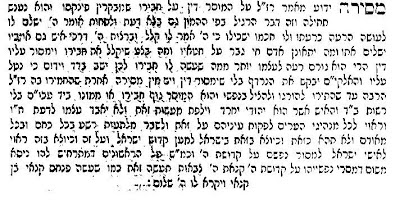Pele Yo'etz on Mesira

The Pele Yo'etz's entry on Mesira:
Mesira
The statement of Haza"l is known about one who gives over judgement to Hashem (see Rosh Hashana 16b) about his friend, that his heavenly notepad is checked and he is punished first. And this is something that is common in the mouths of even the uneducated masses and the lowly ones, who would say, "Hashem should punish the evildoer according to his evil." And if they were wise, they would be wise to the fact that Hashem told him to curse. And When a man's ways please the LORD, He maketh even his enemies to be at peace with him. (Mishlei 16:7) Wherefore doth a living man complain, a strong man because of his sins? (Eicha 3:39) And what does he gain by cursing his friend and giving over judgement? Such a person causes evil to himself more than what his friend did! Therefore, Let him sit alone and keep silence, because He hath laid it upon him. (Eicha 3:28) And Hashem will seek out [to help] the victim without [humans] giving over judgement to Hashem.
And there is another type of Mesira that Haza"l were very stringent about so much so that they allowed killing the informer and saving yourself with his soul (see Bava Kamma 117a in the ארי עלה מבבל gemara). This is referring to a case of one who gives over the body or money of his friend to the Aku"m [government] without permission from a Beit Din. And a Jewish man should tremble and fear from doing this and should not commit [spiritual] suicide, Has Veshalom. And it is worthy for all city leaders to open their eyes about this, and to break the straying of this evildoer (?) with all their power and all their might. And there should not be like this or anything similar to this in Israel for the sake of the holiness of Israel. And about this and anything similar to this, it is worthy for Jewish men to give over their souls for the sake of sanctifying Hashem, as is said about the early sages, to whom a miracle occurred for them because they gave over their souls to sanctify Hashem. The zeal of the LORD of hosts doth perform this (Yeshaya 9:6) just as Pinehas, the zealot, the son of the zealot, has done. And he called it "Hashem Shalom". (Shofetim 6:24)




7 Comments:
Finally someone saying it as it should be said.
Is the first quote saying that "it was mandated from Shomayim" when Mishlei says "And if they were wise, they would be wise to the fact that Hashem told him to curse."?
Yes. In other words, if X curses out Y, Y should realize that this was mandated from Shamayim, and not curse out X in return. The Pele Yo'etz is more lengthy with this concept when he talks about "Bizayon".
I dont know why the need for this:See the Rambam:
If the informer has carried out his intention and given information, it is my opinion that we are not allowed to kill him unless he is a confirmed informer, in which case he must be killed lest he inform against others. There are frequently cases in the cities of the Maghrib, where informers who are known to reveal people's money are killed or are handed over to the heathen authorities to be executed, beaten, or imprisoned, as befits their crime. (Rambam, Hilkhot Hovel u-Mazik 8:10-11)
Another:
"The Rambam Nizakin 8:10 states: “It is permissible to murder one who is deemed an informant anywhere even today that we don’t judge capital cases, and it is even permitted to murder him before he informs by just hearing him say, “I will inform on said individual with regard to his physical body or his money”. This even applies for an insignificant amount of money. He thereby has doomed himself to be killed, and we warn him and we tell him “do not inform”, if he is defiant and he says,”No, I will still inform” it is a Mitzvah to kill him and whoever seizes the opportunity first to kill him will be rewarded.”
The Rambam Tshuva 3:12, and chovil U’mazik 8:9 writes: “there are two kinds of informers, one who delivers his friend to gentiles to kill or injure him, or one who conveys his friend’s money to the gentiles… neither of these (informers), have a portion in the world to come”. "
Thank you, Anonymous.
The Rambam would have been a better source, but I happen to be learning Pele Yo'etz now, so I quoted him.
yaak:
thanks for that comment at dovbear. meanwhile, did you see the latest mishegas they are probably falsely attributing to rav kanievsky? check out nava's site. it never stops. :)
kt,
josh
Post a Comment
<< Home